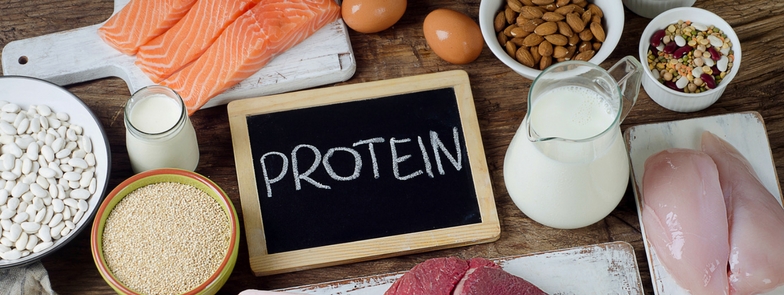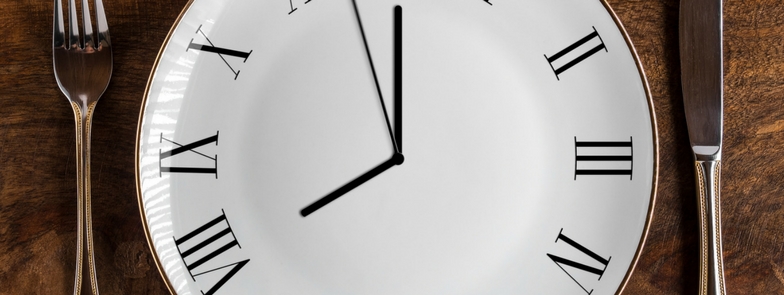Weight Management & Satiety
Obesity is a multi-factorial and complex health issue. Current guidance for weight management encourages physical activity along with consuming an overall healthy eating pattern which includes whole grains, fruits, vegetables, lean proteins, low-fat and fat-free dairy products. A growing body of research suggests that dietary protein, specifically, can help promote satiety, facilitating weight loss when consumed as part of reduced energy diets.
Several clinical trials have specifically assessed the effects of high-quality protein from eggs on satiety and weight loss. For example:
- In a study in overweight adults, calorie-restricted diets that included either eggs or a bagel for breakfast were compared; the people who consumed eggs for breakfast lowered their body mass index by 61%, lost 65% more weight, and reported feeling more energetic than those who ate a bagel for breakfast.
- Men who consumed an egg breakfast versus a bagel breakfast showed that appetite hormones were suppressed following eggs at breakfast, as was energy intake over the course of the day.
- A study of overweight premenopausal women that evaluated satiety responses to eating a turkey sausage and egg breakfast sandwich versus a low-protein pancake breakfast showed better appetite control and few calories consumed at lunch following the egg-based breakfast.
- In a 3-month trial among subjects with type 2 diabetes, those who consumed 2 eggs per day for 6 days a week reported less hunger and greater satiety than those who consumed less than 2 eggs per week.
Egg Yolk Fact or Fiction

Myth: Egg yolks are loaded with cholesterol.
Fact: Yes, egg yolks are a natural source of dietary cholesterol. But dont worry! Read myth #2.
Spacing Protein Intake Can it Help with Weight Loss and Maintenance?

Featured article in the Winter 2018 Issue of Nutrition Close-Up; written by Apeksha Gulvady, PhD
Over 36% of adults and approximately 17% of children and adolescents in the United States are obese, and among the adults in particular, obesity prevalence is higher in women (38.3%) than in men (34.3%).? While both diet and lifestyle changes are important weight management strategies, both successful weight loss and maintaining weight loss over ti me can be challenging.
Intermittent Fasting for Health and Longevity

Featured article in the Winter 2018 Issue of Nutrition Close-Up; written by Krista Varady, PhD
Intermittent fasting has gained popularity over the past decade, but many people are still confused about what fasting entails. To put it simply, intermittent fasting involves a short period of not eating followed by a period of eating freely. Fasting does not equate to starvation, and with all intermittent fasting regimens, you get to eat every day.
Womens Health and Fitness Day

Women often struggle to balance busy careers and family while budgeting time for health and fitness. Fortunately, the last Wednesday in September is designated as National Womens Health and Fitness Day! A time to spotlight the importance of regular physical activity and healthy living for women. The following strategies can help many women resist the temptation to allow a busy schedule to hijack exercise time and nutrition goals.
Whole foods high in protein, fiber and whole grains may enhance satiety when consumed as snacks

Featured article in the January 2017 issue of Nutrition Research Update
A recent paper published in Advances in Nutrition summarized evidence on associations between snacking and both satiety and body weight. Although snacking is a source of calories, it can also be satiating and promote appetite control at subsequent meals. Based on published literature on snacking food choices and behaviors, the paper reported that whole foods high in protein, fiber and whole grains (e.g., nuts, yogurt, prunes, and popcorn) enhance satiety when consumed as snacks. They also noted the evidence concerning the effects of snack foods on obesity has been mixed, with a number of intervention and observation studies not finding a link between snack foods and increased weight status.
In conclusion, this review suggests that judicious selection of snack foods has the potential to contribute valuable nutrients to the daily diet [and] contribute to satiety, with higher-protein foods having the strongest effect.
Reference Citation
Njike VY, Smith TM, Shuval O, Shuval K, Edshteyn I, Kalantari V, Yaroch AL. Snack Food, Satiety, and Weight. Adv Nutr. 2016;7:866-78.
